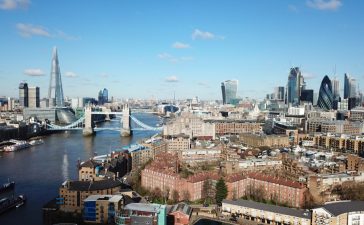New Zealand and Canada are the most unsustainable housing markets in the world, according to Bloomberg
New Zealand and Canada are the two countries with the most unsustainable housing markets in the world, according to Bloomberg.
Bloomberg economist Niraj Shah’s “housing bubble dashboard” showed the two countries holding the top spots.
They have the highest cost of housing compared with wages, beating Australia, the UK, Norway and Sweden – which are also vulnerable.
New Zealand has the highest house price to rent ratio in the world, and the highest house price compared to income (a ratio of 156.8), while Canada has the highest real house prices and the biggest percentage of credit to households, with New Zealand just behind, according to Shah.
New Zealand household credit is the equivalent of 94 per cent of gross domestic product. That compared with 100.7 per cent of GDP in Canada, 76.3 per cent in the US, and Australia’s 120.3 per cent.
House prices in New Zealand’s biggest city, Auckland, have softened, but low mortgage rates may head even lower, with the potential to provide a boost.
New Zealand’s central bank cut its benchmark rate, the official cash rate (OCR), to a record low of 1.5 per cent in May, prompting banks to cut mortgage rates. The Reserve Bank held the OCR last month, but is expected to cut rates further, possibly in August, due to a weaker than expected economy.
There’s been speculation the OCR could go below 1 per cent next year.
There’s a risk that a global round of monetary easing may fuel housing bubbles. While central bankers are focused on avoiding a global economic downturn, looser monetary policy could sow the seeds of the next crisis, said Shah.
The OECD recently warned that New Zealand’s housing market continued to be the biggest potential issue for the economy.
The main domestic risk is a housing market correction, though there is no evidence of oversupply. The effects of a contraction would be magnified by the elevated household debt levels resulting from sustained house price increases, the OECD report said.
The Government’s foreign buyer ban, an attempt to curb house prices, has seen a significant drop in home ownership by overseas residents. House sales to overseas buyers dropped 81 per cent in the March quarter compared to the same time last year, Statistics New Zealand data shows.
Weakness in Auckland house prices is weighing on the rate of property value growth across New Zealand, with affordability still a major problem, QV said recently. Its June market update showed the nationwide rate of residential property value growth slowed to 2 per cent last month, from 3.5 per cent a year earlier.






